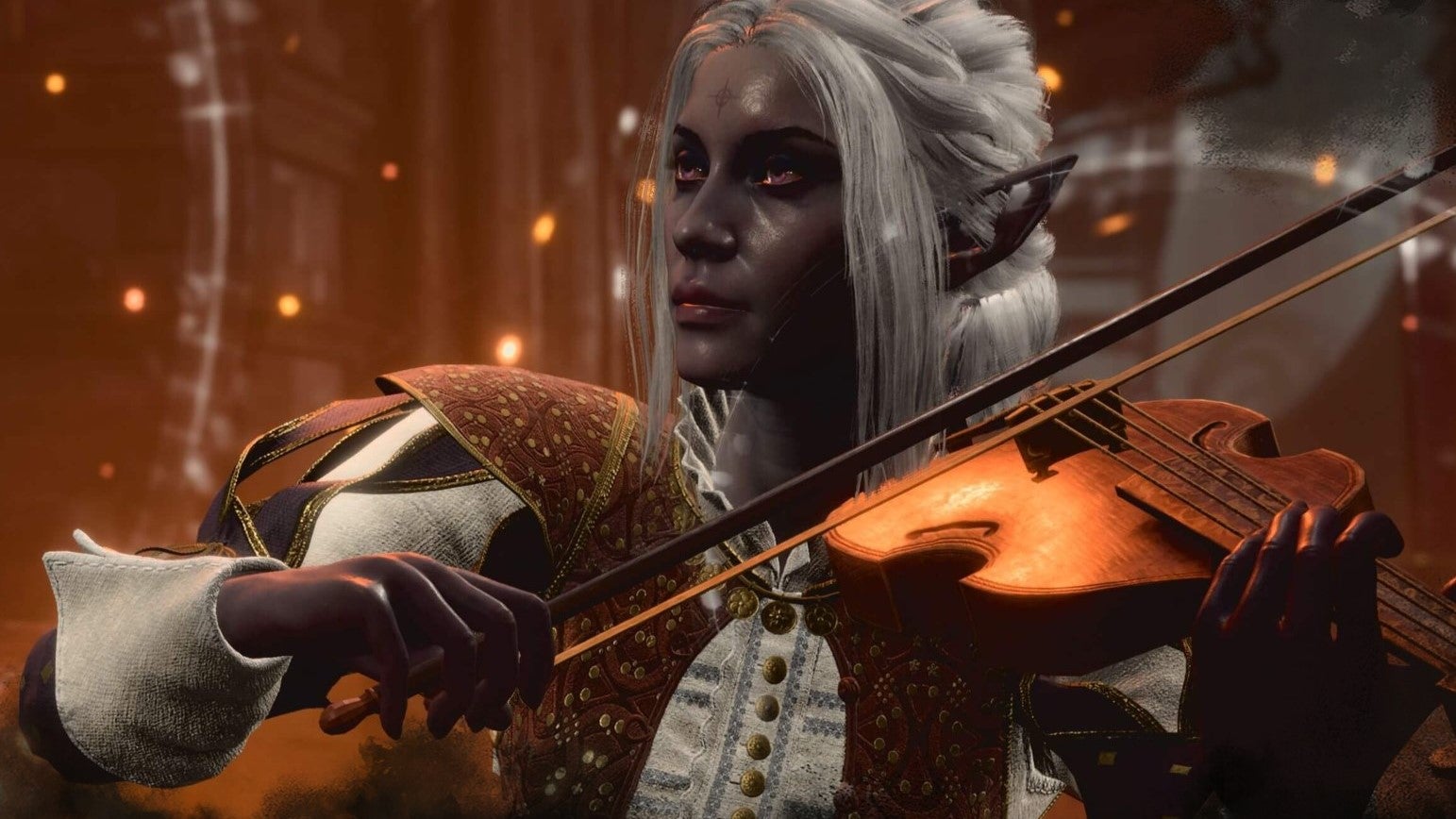I was 38 years old when I realised I was a bard. I shouldn’t really have been surprised – I was Danny Zuko in my high school production of Grease after all, and then I was Frank n’ Furter in stockings and suspenders. But the realisation vexed me, because until that point I’d never had much time for bards. They were, as far as I was concerned – and I can barely bring myself to write it now – padding. Oh the hollowness! Oh the shame! How could I ever have been so empty? Yet, perhaps the fault was not entirely my own.
You see, I grew up on bards as interpreted by computer games, and to me, there, they were a forgettable class. They were there only to serve others. In Dark Age of Camelot, which I spent a long time playing, the bard-likes were the speed buff your group needed to get around quickly – that was their purpose. They could do a few other things but none as well as the other classes could. And in World of Warcraft, another game I put a lot of time into, bards weren’t a playable class at all.
Look across RPGs and it’s a similar story. There’s no bard class in the Divinity: Original Sin series, and in Dragon Age, the whole series, the bard only crops up as playable in Origins as a rogue subclass. Those series couldn’t be more heavily inspired by Dungeons & Dragons and yet, the poor old bard doesn’t get a look-in. And it leaves you wondering why. Or, it reinforces a belief somewhere in your head that bards aren’t good enough to make the cut.
The obvious BioWare exceptions, by the way, are Baldur’s Gate and Neverwinter Nights, which are quite old now, and were literally Dungeons & Dragons games. They did have bards. But how many of you played as one? Honestly, I didn’t even notice them – perhaps I had been conditioned not to by then.
